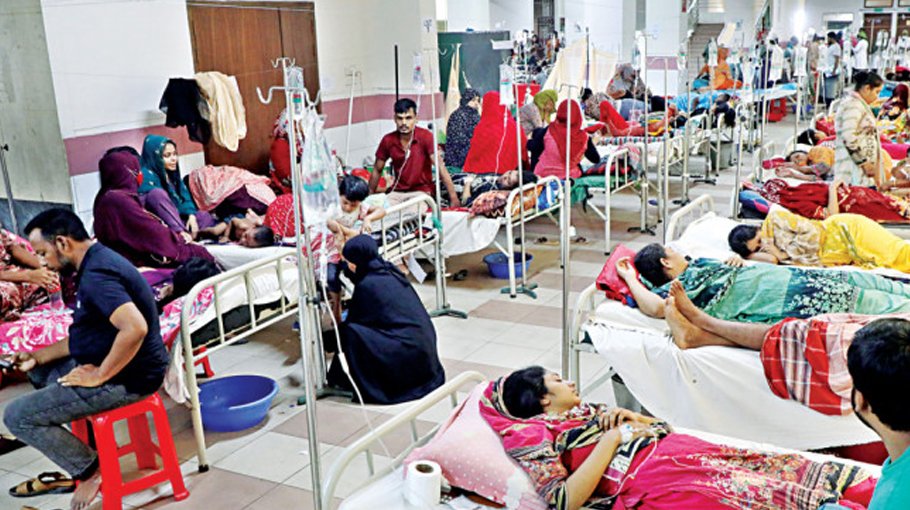Dengue claims 24 lives in 15 days
Urgent measures needed

The dengue outbreak continues to escalate, claiming 24 lives and resulting in 6,234 hospitalisations in the first 15 days of this month alone.
This rapid rise in cases highlights the severity of the mosquito-borne disease, which is now posing an increasingly deadly threat across the country.
According to the government’s Directorate General of Health Services (DGHS), the situation is worsening, with 6,521 dengue cases and 27 deaths reported throughout the last month.
This year alone, a staggering 19,075 dengue patients have been hospitalised, with nearly two-thirds of the cases reported outside the capital, Dhaka.
Currently, 1,981 dengue patients remain under treatment in various hospitals, with 645 of them receiving care outside the capital city.
Inadequate mosquito control activities, lack of proper surveillance, and insufficient awareness efforts have contributed to the surge in dengue infections outside Dhaka, health experts say.
The rising number of cases outside the capital indicates a growing concern that the disease could spread even further unless urgent preventive measures are implemented.
Experts warn that the situation could become more critical if immediate steps are not taken to curb the spread of the disease.
The data from the Directorate General of Health Services (DGHS) further paints a concerning picture. So far this year, the deadly Aedes mosquitoes have claimed 107 lives, with over 10,698 patients admitted to hospitals outside Dhaka.
The virus seems to affect males more than females, with 62.1 percent of the total cases being male. However, a higher percentage of fatalities—53.3 percent—are female.
The age group analysis reveals that young adults are particularly vulnerable to dengue. Among the infected, 2,768 patients are aged between 21 and 25, 2,597 are between 26 and 30, and 2,389 are in the 16 to 20 age group.
Additionally, the mortality rate is significant in two specific age groups: 10 patients have died in the 6-10 age group, and another 10 deaths occurred among those aged 46-50.
This age distribution shows that dengue is not only affecting the younger population but also taking a toll on those in middle age. The spread of the disease among such a wide demographic underlines the need for comprehensive public health strategies.
Amidst this health crisis, political changes have added complexity to the situation. Following the fall of the Awami League government in early August, 12 city corporation mayors, 330 municipality mayors, and almost all zilla and upazila parishad chairmen were removed from their positions.
The interim government has since appointed administrators to take over the responsibilities of the ousted mayors.
This administrative reshuffle comes at a critical time when the country is facing a severe public health challenge. The transition may impact the effectiveness of local governments in addressing the outbreak, particularly in mosquito control and health awareness campaigns.
Experts stress that without stronger mosquito control measures, public awareness, and a coordinated national response, the situation could spiral out of control.



